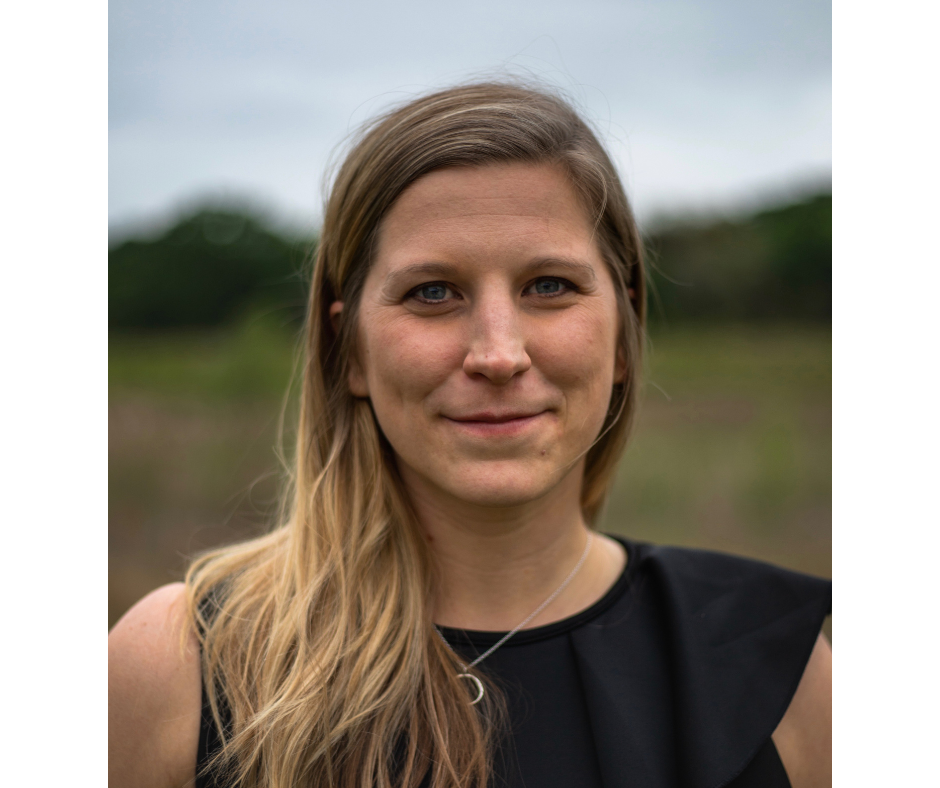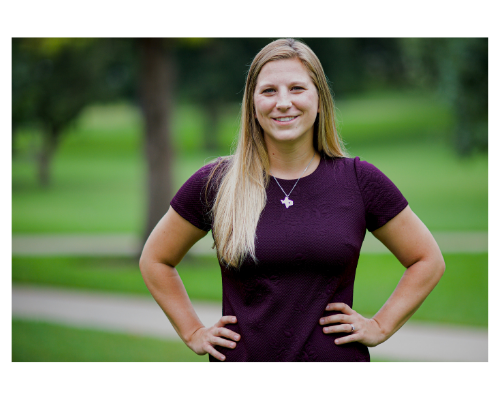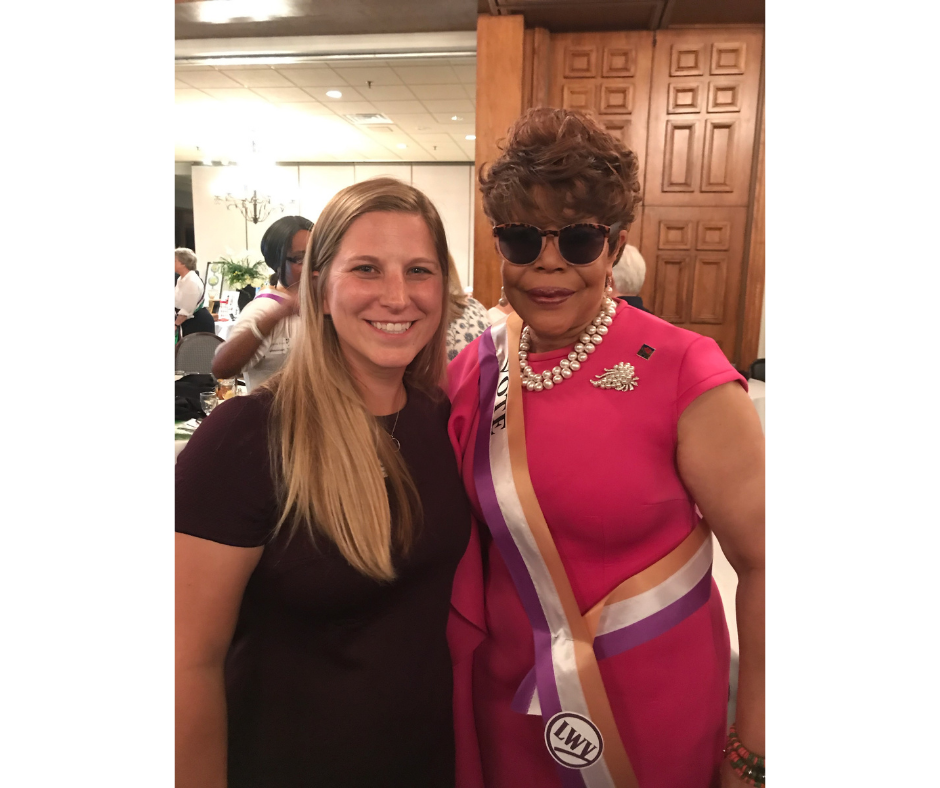
Audrey Spanko is running against incumbent Bryan Hughes for Texas State Senate seat for district 1. Hughes never responded to Spanko’s invitation to a debate series. Additionally, Hughes did not respond to The Tyler Loop’s request for an interview.
Spanko has two degrees in social work and has built a career in social services working for nonprofits, healthcare facilities and the Department of Family Protective Services. “Through this work I’ve witnessed the impact of ineffective Texas politics, and I’m tired of it,” she says on her website.
This conversation has been edited for length and clarity. Interview by Rebecca Smith, production by Jane Neal.
We’ll start out with a fun question first. How are you keeping yourself entertained while social distancing?
I wish I had a fun answer! It’s either campaigning or work! I worked remotely before pandemic and sometimes it feels like work never stops.
Did you catch Tiger King or Hamilton?
Oh yeah, I definitely caught those! I was visiting my sister for 4th of July and she has Disney access, so we watched Hamilton. It’s so good!
How has your campaign addressed the coronavirus?
That’s a great question. We initially put together a resource guide for the region. It was primarily used for food services for students who weren’t able to get food from school and a few other resources. There aren’t many resources in East Texas to share. When we are in need, we have limited resources. We tried to compile everything for Senate district one, all 16 counties, so folks would have a resource to be able to find what they need, various resources and sites. I have been trying to reiterate our message with this campaign that everything we have been working for since the campaign started is things we would have benefited from had they been in place during a pandemic.
Campaigning is letting people know that we’re going to keep fighting for these things that we all need. We won’t be out of the pandemic, I think, this year. It will be the next legislative session before we come together as a body to make sure we are enhancing all of those laws we need to actually make the difference for the pandemic.

What are some of the unique challenges to your district and how would you address them?
Healthcare is definitely right at the top for not just this district, but across the state of Texas. In our district, prior to the pandemic, we had several tens of thousands uninsured.
We know health insurance in the state is often tied to income. And when we have record numbers of unemployment, we’re also increasing record numbers of uninsured. I try to keep pointing out the message that East Texas is not immune to this pandemic and we’re not immune to all of the effects of it, both with symptoms because of the virus, but also all of the supplemental outcomes and side effects of it as well.
In this area we have so many students who don’t have access to broadband internet as well. How are you supposed to teach remotely when kids don’t have access to those resources, but how do you put kids back into schools safely when we have a virus that could potentially be fatal for them or their families? That’s kind of the piece that keeps getting lost in conversation across the state: When it comes to what’s accessible, it’s not all quite created equal right now, because the internet is not a public utility.
We’ve shifted so much of our campaign online too, but then get constant reminders from folks who say “That’s good that you’re doing that, but we don’t have access to it. We’re not going to be able to hear or participate.” How do you engage people in rural East Texas in a pandemic when there’s not WiFi and access to broadband?
What are some other ways you would advocate for people in this district specifically?
We also need to be making sure that we’re investing in our public schools, outside of a pandemic mode, that we’re valuing our teachers because we know it is crucial.
If you look at the district economy, a lot of our counties and communities are all in rural areas that center around public school, and they employ a large portion of our community members. And so we need to be really investing there. The last legislative session, they invested additional dollars in public education, but they didn’t make it a long-term plan. So the dollars that we saw after the last legislative session were earmarked just for the last two years. We’ve got to find dollars to keep teachers in the schools and make sure we’re really investing in public schools. So that is a huge piece of what we’re going to be advocating for.
Another big piece is making sure individuals have access to the polls to vote and make their voices heard in rural areas. We’re asking people to travel 10, 20, or 30 miles to go vote. For a lot of our older population that is just not possible. We need to be making sure we are increasing our polling locations instead of reducing them. They did get drastically cut this last legislative session. I don’t know that many people are seeing yet how that’s going to impact them because we haven’t yet had a general election.
You mentioned public education and rural health care. You challenged Senator Hughes to debates on those issues as well as jobs and wages. Can you expand on some of your other ideas for those areas?
The state minimum wage has not been raised in Texas since 2009, it’s currently $7.25. If you make minimum wage full-time, you’re making about $15,000 annually. It’s not enough. The argument that you need to have a degree, or you need to be seeking higher employment is not fair. Regardless of your employment, if you’re working 40 hours, you should be able to support your family.
We also need to be making sure that if local areas decide to put in any kind of a mandate on paid sick leave and other benefits for employees that we are able to keep those in place and that we’re really encouraging businesses to take care of their employees.
The argument is that would impact small businesses, but really it would be impacting those corporations that employ so many people in East Texas. Many retail shops and others aren’t small businesses. They’re corporations that have the funds available. So we should be holding them accountable. A living wage, even $15 an hour only accounts to about $32,000 a year, which is still not enough to support a family.
So we have to do better and we have to be actually working to make sure that folks are taken care of and have the jobs and resources that they need.
All of those I strongly believe will bring new jobs to the area and bring new industry here. I hear a lot of other candidates talk about trying to figure out what kind of tax breaks or incentives we can give businesses to come to East Texas. Even with those things, which I don’t think we should offer, they’re never going to come if we don’t have the infrastructure in our communities that support their employees and their families.
How has COVID-19 and the new issues facing the economy changed your plan for what should be done if you’re elected or, or has it changed?
That’s a great point. It’s really brought home that everything we were fighting for before, everything I mentioned is so needed. And had these policies been in place before, we may not have seen quite a dramatic economic impact that we’ve seen in our area and across the state.
If employees can take off when they feel sick, they’re not potentially bringing a deadly virus into the workplace. If they have health insurance they won’t feel like, “Oh my gosh, if I go to the doctor, I’m going to be hit with a bill that I’m going to be paying on for the rest of my life.” We could have potentially prevented some of this community spread that we’ve seen.

I saw that you had a background with the Department of Family and Protective Services. Unfortunately East Texas has a high rate of child abuse and domestic violence. Do you have any plans for ways to address those issues? There is CDC research that a good way to prevent child abuse is those economic policies that you were talking about, about supporting families. Are there other ways you’d like to address those things that come from your background with that department?
Yes. My background in that department, very similar to what I’m doing right now was in prevention. I worked for prevention and early intervention to prevent all of these awful outcomes that we see for families and making sure that we are creating and building a system that is supportive of families, of new moms, new parents, making sure they have the education and all of the resources they need to so we can limit the stressors and those risk factors that we see for adverse childhood experiences.
The department is currently still in lawsuit because of such poor outcomes for state children. There has been a lawsuit pending for several years for the Department of Family and Protective Services, and we’ve not seen any improvement. So the data shows that unfortunately, once children come into care, their outcomes are really severe and we need to be doing more for the system and we need to be supporting that.
In the last legislative session or two sessions ago, they gave a $10,000 raise to all CPS workers. They saw a huge migration of people in Adult Protective Services go to CPS because of the raise. Then this last legislative session, they gave APS the same raise, but what they also did to try and recruit more people into the department was remove the requirement for a degree for child protective service workers. I strongly believe that is a workforce that needs individuals who understand adverse childhood experiences, who understand all of these things that you don’t typically get as a police officer coming in and getting this job after retirement or various other places where they started to recruit workers.
We need to really invest in the structure that we have to support kids. We need to make sure that once they’re in the system, we don’t further traumatize and we don’t further hurt these children. We need to make sure we’re working with professionals who understand the effects of trauma.
In Texas we think, “This is my bubble, everybody stay in your own bubble and we’re not going to mess with each other,” but we need to create more community around being a family.
Tyler ISD recently voted to change the name of Robert Lee and John Tyler high schools. I wanted your thoughts on that.
I am so impressed and excited for the step towards progress and change for East Texas. I am excited to hear that our local leaders listened to the community, listened to the students who brought this to their attention and really stepped up and made that change happen for them. For every generation to come through Tyler moving forward, I am thrilled about this change. I know it is the beginning of a bigger conversation that’s going to continue in Tyler around making sure that our teachers and students have the resources they need to be able to address systemic racism and implicit bias in East Texas and across the state.
Another issue you mentioned is being an advocate for the LGBTQ community. How do you propose to improve the lives of those LGBTQ Texans?
Right now in the state of Texas, this community is not protected from discrimination for housing and various other resources. So the biggest piece we can do is put that into law and we can make sure all communities in Texas are protected and that we are preventing discrimination. There are statutory regulations that make sure couples or individuals who are together in a relationship don’t fall under certain guidelines in the state, but those same protections aren’t available for LGBTQ partners or individuals of the same sex. So we need to make sure there’s legislation to make sure that children can date without any kind of repercussions when they are under the age of 17 and they have mutual consent with each other, that we’re not somehow creating a system that could prosecute later.
If you had to pick one other thing for people to know, what would it be?
That they need to vote, we need voters. I want people, even if they don’t vote for me, to keep voting. The system is not going to work for everyone unless everybody’s involved. We’ve got work to do, but I’m prepared to do it. Let’s make it happen.
Love what you're seeing in our posts? Help power our local, nonprofit journalism platform — from in-depth reads, to freelance training, to COVID Stories videos, to intimate portraits of East Texans through storytelling.
Our readers have told us they want to better understand this place we all call home, from Tyler's north-south divide to our city's changing demographics. What systemic issues need attention? What are are greatest concerns and hopes? What matters most to Tylerites and East Texans?
Help us create more informed, more connected, more engaged Tyler. Help us continue providing no paywall, free access posts. Become a member today. Your $15/month contribution drives our work.







